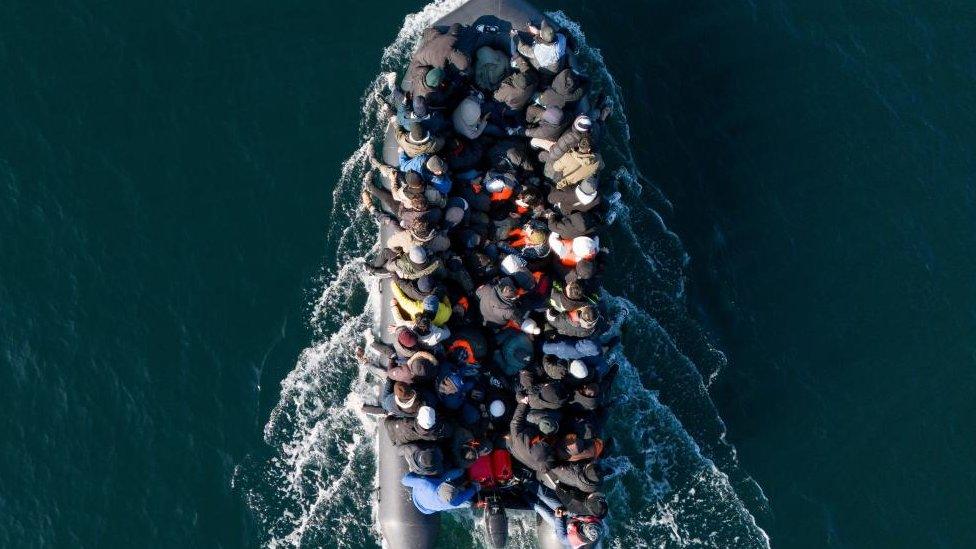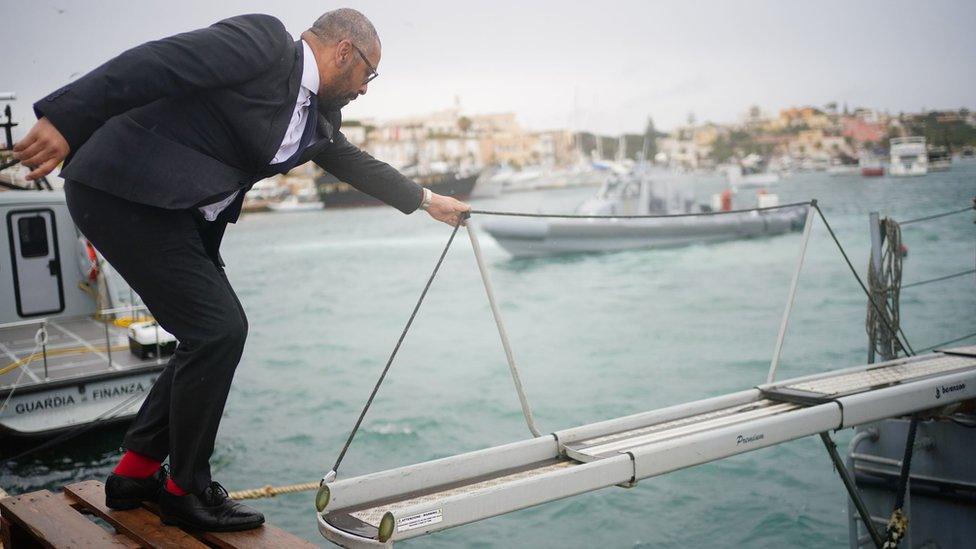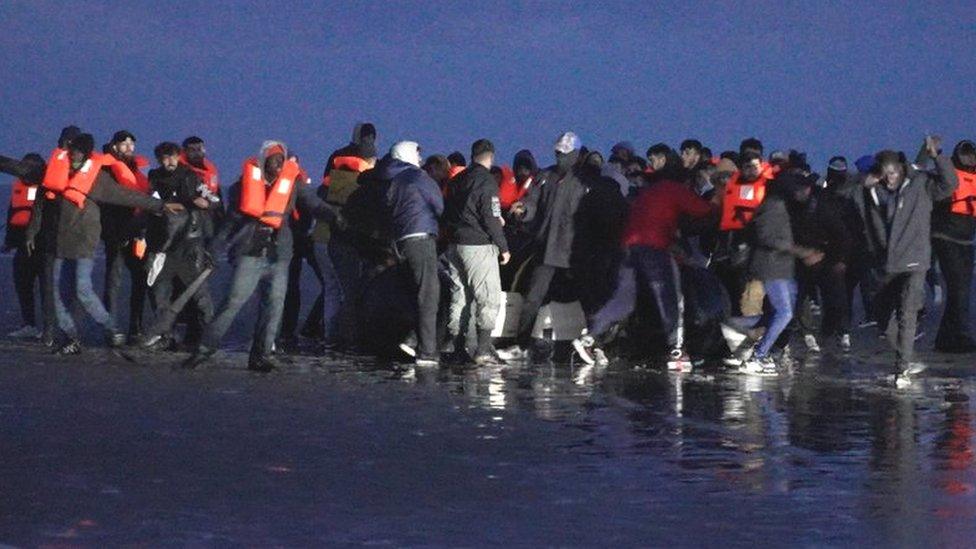Asylum 'limbo' numbers could top 100k, warns charity
- Published

New asylum laws could leave 115,000 people in limbo and cost the taxpayer £6.2bn on accommodation, a charity representing refugees has claimed.
The Refugee Council warned of a "system meltdown" due to the numbers denied asylum status who can't be returned to their country of origin, or sent to Rwanda due to a lack of capacity.
The estimates assume the Rwanda scheme will not deter small boat crossings.
The government says it will work and has vowed to begin flights by July.
Under the Illegal Migration Act, which passed last year, the majority of people who arrive in the UK seeking asylum are not being given a decision.
Last week, the Rwanda scheme finally passed fully into law and the government wants to send some of those blocked from settling in the UK to the east African country. Alternatively, they could be sent back to their home country if it is deemed safe.
However, the Refugee Council has warned the vast majority of arrivals refused the chance to apply for asylum will still need to be housed in Home Office accommodation because only a small proportion are expected to be removed any time soon.
The Home Office's own figures published this week showed that the number of enforced removals since the start of 2024 was 2,134.
The Refugee Council's forecasts are based on official data detailing how many people have already been deemed inadmissible under the new asylum rules.
There are already tens of thousands of people, and their dependents, who are in the UK but have been refused access to the asylum system.
According to the charity's analysis, even if 2,000 people are sent to Rwanda this year and 10,000 are returned to their home countries, the government would still have to house around 115,000 migrants.
That projection is based on the average rate of small boat arrivals over the last two years.
These estimates assume the small boats will keep arriving like they have in recent years, regardless of the Rwanda scheme being up and running.
The charity said that would mean the government spending £6.2bn a year in accommodation costs, which works out at £17.1m a day.
The Refugee Council also forecast that even if the government managed to send 5,000 people a month to Rwanda, it would still have to house about 90,000.
The Home Office has not published its own detailed estimates of how it expects the deterrent effect to play out, though Prime Minister Rishi Sunak and successive home secretaries have repeatedly said it will work.
And while Rwanda only has limited capacity to accept migrants from the UK now, the government says that will increase.

Home Secretary James Cleverly visited Italy this week to discuss its strategy for small boat migration
Enver Solomon, chief executive of the Refugee Council, said it will "lead to another entirely avoidable system meltdown" and called on the government to prioritise "processing asylum claims promptly and fairly".
He continued: "Instead of operating an effective and fair asylum system, the government has recklessly brought in this misguided legislation without any apparent thought to its staggering costs and long-term consequences."
Responding to the Refugee Council report, a Home Office spokesman said: "Ahead of the Illegal Migration Act coming into force, we are removing thousands of illegal migrants to their country of origin.
"Many of this cohort will be in scope for removal to Rwanda, which is an uncapped scheme, and can expect to be served removal notices in due course."
The Refugee Council's calculations come after the Public Accounts Committee challenged Home Office officials last week over what it was going to do with the growing number of asylum seekers in limbo.
MPs repeatedly asked them to explain the solution and were told that the prime minister would set it out soon.
Additional reporting by Callum May
- Published23 April 2024

- Published23 April 2024